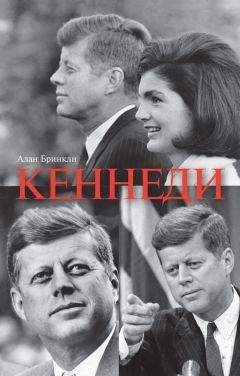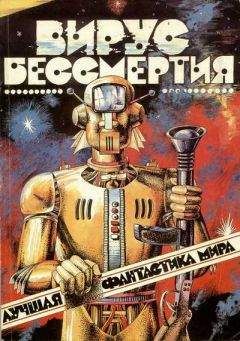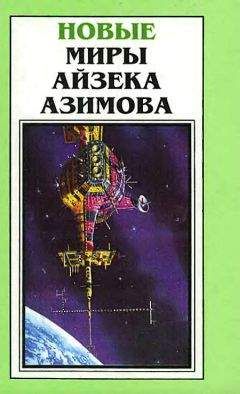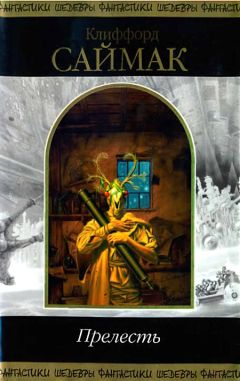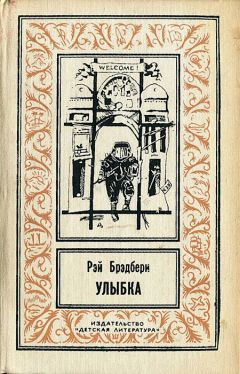Примечания
1
«Фишка дальше не идет» — фраза из обихода игроков в покер, получившая более широкое распространение благодаря президенту США Гарри Трумэну, который сделал ее своим девизом и табличкой с этой надписью украсил свой стол. В покере «фишка» помещается перед игроком, которому подошла очередь сдавать карты. Если игрок не хочет сдавать карты, он передает фишку следующему. В переносном смысле фишка — атрибут человека, ответственного за принятие решений. Говоря, что она «дальше не идет», президент давал понять, что окончательное решение принимает именно он.
2
«Музей шестого этажа» располагается на седьмом этаже, так как в Америке седьмой этаж считается шестым.
3
Arthur M. Schlesinger Jr., A Thousand Days: John F. Kennedy in the White House (Boston: Houghton Miffl in, 1965), p. 206.
В ссылках на источники использованы следующие сокращения:
FRUS: Foreign Relations of the United States, 1961–1963 (edited by David S. Patterson)
JFK: John F. Kennedy
JFKL: John F. Kennedy Library
JPK: Joseph P. Kennedy Sr.
PPP — JFK: Public Papers of the Presidents of the United States: John F. Kennedy, 1961–1963
4
Robert G. Athearn, ed., An Illustrated History of the United States (New York: Choice, 1988), vol. 16, p. 1432; Daytona Beach Morning Journal, November 22, 1963.
5
Schlesinger, A Thousand Days, p. 1027.
6
Doris Kearns Goodwin, The Fitzgeralds and the Kennedys: An American Saga (New York: Simon and Schuster, 1987), pp. 21–129.
7
Ibid.
8
Robert Dallek, An Unfinished Life: John F. Kennedy, 1917–1963 (New York: Little, Brown, 2003), pp. 6–7.
9
Goodwin, The Fitzgeralds and the Kennedys, pp. 226–33.
10
Nigel Hamilton, JFK: Life and Death of an American President, vol. 1, Reckless Youth (London: Random House UK, 1992), pp. 5–23; Goodwin, The Fitzgeralds and the Kennedys, pp. 256–59, 262–63; Rose Kennedy, with Robert Coughlan, Times to Remember (New York: Doubleday, 1974), pp. 15, 67, 72–78.
11
Goodwin, The Fitzgeralds and the Kennedys, pp. 235–36.
12
Ibid., p. 290.
13
Джек — уменьшительное имя от имени Джон.
14
Игра, в которой контактные элементы американского футбола заменяются касанием (touch).
15
David Heyman, A Woman Named Jackie (New York: Lyle Stuart, 1989), pp. 140–41; Peter Collier and David Horowitz, The Kennedys: An American Drama (New York: Simon and Schuster, 1984), pp. 39–45; Gloria Swanson, Swanson on Swanson (New York: Random House,1980), pp. 209, 328–70.
16
Goodwin, The Fitzgeralds and the Kennedys, p. 309.
17
Rose Kennedy, Times to Remember, pp. 126, 174, 192; John Ney, Palm Beach (Boston: Little, Brown, 1966), p. 18; Hamilton, JFK, pp. 42, 87–88, 91–93, 101–5, 288, 301–17, 349–52.
18
JFK to JPK, December 9, 1931, Young Kennedy File, JFKL; JFK to JPK, n. d., Young Kennedy File, JFKL.
19
Riverdale Country School, report on JFK, February 25, 1930, Young Kennedy File, JFKL; Record of JFK, November 1 to December 6, 1930, Canterbury School, Young Kennedy File, JFKL; Ralph G. Martin, Seeds of Destruction: Joe Kennedy and His Sons (New York: G. P. Putnam, 1995), p. 32.
20
Report of JFK, Choate School, 4 th Quarter, n.d., Young Kennedy File, JFKL.
21
Ibid.
22
Ibid.
23
Hamilton, JFK, pp. 88–101.
24
Ibid.
25
Herbert Parmet, Jack: The Struggles of John F. Kennedy (New York: Dial Press, 1980), p. 37.
26
JFK to JPK, n. d., 1933, JFKL. См. также Hamilton, JFK, p. 110; Dallek, An Unfinished Life, pp. 77–78, 80.
27
Goodwin, The Fitzgeralds and the Kennedys, pp. 456–65, 486–89; Hamilton, JFK, pp. 112–13, 118–35.
28
mucker (англ.) — деревенщина, хам.
29
Hamilton, JFK, pp. 122–33.
30
Ibid., pp. 143–45.
31
JFK to Billings, n.d., 1935, JFKL; Edward E. Moore to Richard M. Gummere, May 11, 1935, JFKL.
32
Application for Admission, Harvard College, May 8, 1935, JFKL.
33
«General Estimate,» Harvard Admissions Application, April 30, 1935, JFKL.
34
JPK to Delmar Leighton, August 28, 1936, JFKL.
35
JPK to JFK, December 1, 1937, JFKL; multiple letters, JFK to JPK, n. d., 1939, JFKL. See also Goodwin, The Fitzgeralds and the Kennedys, pp. 505–6, 581–82; Hamilton, JFK, pp. 159–70, 176–77.
36
Multiple letters, JFK to JPK, n. d., 1939, JFKL.
37
Hamilton, JFK, p.192.
38
JFK to JPK, Vienna, n.d., 1939, JFKL.
39
Hamilton, JFK, pp. 185, 194, 199.
40
«Extra Curricular Activities,» 1937–1938, «Extra Curricular Activities,» 1939–1940, JFKL; Hamilton, JFK, pp. 208–10.
41
JFK to JPK, n. d., 1939, JFKL.
42
Ibid.
43
Ibid.
44
Ibid.
45
«Report on Thesis for Distinction,» n. d., 1940, JFKL; Dallek, An Unfinished Life, p. 63.
46
JFK to JPK, spring 1940, n. d., 1940, JFKL; John F. Kennedy, Why Eng land Slept (New York: Wilfred Funk, 1962, original edition 1940), p. 17.
47
Dallek, An Unfi nished Life, p. 64.
48
Alan Brinkley, The Publisher: Henry Luce and His American Century (New York: Alfred A. Knopf, 2010), pp. 422, 425.
49
Hamilton, JFK, p. 331; Kennedy, Why England Slept, pp. 13–14.
50
Kennedy, Why England Slept, p. 217.
51
Ibid. p. 218.
52
Ibid., p. 185.
53
Edward M. Daugherty to JPK, November 1, 1940, JFKL; JFK to JPK, n. d., 1940, JFKL.
54
Goodwin, The Fitzgeralds and the Kennedys, pp. 632–35.
55
JPK to Stephen Galatti, February 2, 1942, JFKL; Max Beaverbrook to JPK, February 9, 1942, JFKL; Dallek, An Unfi nished Life, pp. 87–95.
56
John Hersey, «Survival,» New Yorker, June 17, 1944, pp. 31–44.
57
Ibid.
58
HQ 3 rd Bombardment Division, APO 559, Subject: «Aphrodite,» April 8, 1944, JFKL; HQ 8 th Air Force Outgoing Message, August 12,1944, JFKL; Goodwin, The Fitzgeralds and the Kennedys, pp. 688–89.
59
Hamilton, JFK, p. 659.
60
John F. Kennedy, ed., As We Remember Joe (Cambri-dge, Mass.: University Press, privately printed, 1945).
61
New York Journal-American, May 2, 3, 5, 7, 16, 21, 23, June 23, 1945; Chicago Herald-American, May 18, 1945.
62
John F. Kennedy, Prelude to Leadership: The European Diary of John F. Kennedy (Washington, D.C.: Regnery, 1995), p. 5.
63
Ibid., pp. 5, 9–10.
64
Ibid., p. 46.
65
Ibid., p. 69.
66
Dallek, An Unfinished Life, p. 119.
67
Hamilton, JFK, p. 673.
68
Dallek, An Unfi nished Life, pp. 116–27.
69
Michael O’Brien, John F. Kennedy: A Biography (New York: St. Martin’s Press, 2005), p. 19.
70
David Michaelis, Best of Friends (New York: William Morrow, 1983), p. 165; Ralph G. Martin and Ed Plaut, Front Runners (New York: Doubleday, 1960), p. 114.
71
Клуб «Золотая звезда» — организация в США по поддержке родителей, потерявших детей на войне. Название объясняется традицией вывешивать на домах военнослужащих стяги, количество звезд на которых показывает сколько членов семьи находится в рядах армии. Синие звезды символизируют живых военнослужащих, а золотые — погибших.
72
Goodwin, The Fitzgeralds and the Kennedys, p. 712.
73
Hamilton, JFK, p. 753; Goodwin, The Fitzgeralds and the Kennedys, p. 713; John H. Davis, The Kennedys: Dynasty and Disaster, 1848–1984 (New York: McGraw-Hill, 1984), p. 125.
74
Eric Freedman and Edward Hoffman, John F. Kennedy in His Own Words (New York: Citadel Press, 2005), p. 190.
75
S. Alexander Haslam, Stephen D. Reicher, and Michael J. Platow, The New Psychology of Leadership: Identity, Infl uence, and Power (New York: Psychology Press, 2011), p. 151.
76
Dallek, An Unfinished Life, p. 132.
77
Philip Abbott, Strong Presidents: A Theory of Leadership (Knoxville: University of Tennessee Press, 1996), p. 165; Dallek, An Unfinished Life, pp. 142–44.
78
Robert E. Gilbert, «JFK and Addison’s Disease,» JFKL; Robert E. Gilbert, The Mortal Presidency: Illness and Anguish in the White House (NewYork: Basic Books, 1992); Kenneth P. Crispell and Carlos F. Gomez, Hidden Illness in the White House (Durham, N.C.: Duke University Press, 1988), p. 186; O’Brien, John F. Kennedy, p. 225.
79
«Kathleen Kennedy,» n. d., JFKL; New York Times, May 14, 1948.
80
Jonathan Bell, The Liberal State on Trial: The Cold War in the Truman Years (New York: Columbia University Press, 2004), p. 185.
81
Gary Donaldson, The First Modern Campaign: Kennedy, Nixon, and the Election of 1960 (Lanham, Md.: Rowman & Littlefi eld, 2007), p. 38.
82
John F. Kennedy, «Our Foreign Policy in Connection with China,» Congressional Record, January 29, 1949, p. 41; Dallek, An Unfinished Life, pp. 160, 162.
83
Thomas Whalen, Kennedy versus Lodge (Boston: Northeastern University Press, 2000), pp. 127–83.
84
«Rose Kennedy Speaks at a Tea, 1952,» n. d., JFKL.
85
Goodwin, The Fitzgeralds and the Kennedys, p. 768.
86
Hamilton, JFK, p. 780.
87
John H. Davis, Jacqueline Bouvier: An Intimate Memoir (New York: John Wiley and Sons, 1996), pp. 157–95; Donald Spoto, Jacqueline Bouvier Onassis: A Life (New York: St. Martin’s Press, 2010), pp. 105–206.
88
«The Gay Young Bachelor,» Saturday Evening Post, June 13, 1953.
89
Collier and Horowitz, The Kennedys, p. 197.
90
Thomas C. Reeves, A Question of Character (New York: Arrow, 1992), p. 116.
91
Collier and Horowitz, The Kennedys, p. 780.
92
Ibid., p. 354.
93
Theodore Sorensen, Counselor: A Life at the Edge of History (New York: Harper, 2009), pp. 98–115; Collier and Horowitz, The Kennedys, p. 198.
94
John F. Kennedy, Profiles in Courage (New York: Harper and Brothers,1956).
95
Sorensen, Counselor, pp. 144–55.
96
Remarks by Senator John F. Kennedy at the Democratic National Convention, Chicago, Ill., on August 16, 1956, Senate Speech File, JFKL.
97
Arthur M. Schlesinger Jr., Journals, 1952–2000 (New York: Penguin Press, 2007), pp. 43–44.
98
«Stevenson, Truman and Kennedy,» Saturday Evening Post, March 8, 1958, pp. 32–33.
99
Dallek, An Unfinished Life, pp. 782–86.
100
Paul Blanshard, American Freedom and Catholic Power (Boston: Beacon Press, 1949).
101
Goodwin, The Fitzgeralds and the Kennedys, pp. 791–92; Harold Martin, «The Amazing Kennedys,» Saturday Evening Post, September 7, 1957, p. 49.
102
Nellie Bly, The Kennedy Men (New York: Kensington, 1996), p. 98. См. также David Pietrusza, 1960: LBJ vs. JFK vs. Nixon (New York: Sterling, 2006), pp. 15–18.
103
Donaldson, The First Modern Campaign.
104
Theodore H. White, The Making of the President, 1960 (New York: Atheneum, 1961), pp. 3–4.
105
New York Times, August 23, 1959; Abraham Ribicoff to JFK, August 31, 1959, December 16, 1959, JFKL.
106
New York Times, August 25, 1959; Orville Freeman to Robert F. Kennedy, August 4, 1960, JFKL.
107
Benjamin C. Bradlee, Conversations with Kennedy (New York: W. W. Norton, 1975), p. 16.
108
Eleanor Roosevelt to JFK, June 2, 1958, JFKL.
109
JFK to Eleanor Roosevelt, June 29, 1958, JFKL.
110
JFK to Eleanor Roosevelt, December 11, 18, 1958; JFK to Eleanor Roosevelt, January 10, 1959, JFKL.
111
«Ben» to JFK, May 12, 1959, JFKL; Eleanor Roosevelt to Mary Lasker, August 15, 1960, Roosevelt, Eleanor file, June 1958–November 1960, JFKL.
112
Arthur M. Schlesinger Jr. to JFK, April 26, 1960, JFKL.
113
Sorensen, Counselor, pp. 158–63.
114
JFK, Address to the Greater Houston Ministerial Association, September 12, 1960, political campaign, 1960, JFKL.
115
JFK to Editor, Denver Post, August 25, 1959, JFKL; campaign memo on religion, n.d., 1959, JFKL; William Rivkin to Sargent Shriver, August 4, 1960, JFKL; «Remarks of Senator John F. Kennedy,» American Society of Newspaper Editors, Washington, D.C., April 21, 1960, JFKL.
116
New York Times, August 25, 1959; «Agenda for Senator Kennedy,» May 13, 1959, JFKL.
117
JFK to Newton N. Minow, January 13, 1960, JFKL; Robert Drew, Primary, a documentary film, 1960.
118
White, Making of the President, 1960, p. 99.
119
Ibid., pp. 95–105.
120
Ibid., pp. 107–8.
121
William McCormick Blair Jr. to JFK, August 12, 1960, JFKL.
122
Arthur M. Schlesinger Jr. to JFK, January 25, 1960, June 6, 1960, JFKL; Jean Baker, The Stevensons: A Biography of an American Family (New York: W. W. Norton, 1996), pp. 399–400.
123
Adlai Stevenson to JFK, May 11, 1960, JFKL
124
JFK to Adlai Stevenson, January 5, 1960, JFKL; Arthur M. Schlesinger Jr. to Adlai Stevenson, May 16, 1960, JFKL.
125
JFK to Adlai Stevenson, January 5, 1960, JFKL; Stevenson to JFK January 5, 1960, JFKL
126
Sacramento Bee, July 29, 1960; Arthur M. Schlesinger Jr. to JFK, May 25, 1960, JFKL; William McCormick Blair Jr. to JFK, August 12, 1960, JFKL; John Bartlow Martin, Adlai Stevenson and the World (Garden City, N.Y.: Doubleday, 1977), pp. 521–25.
